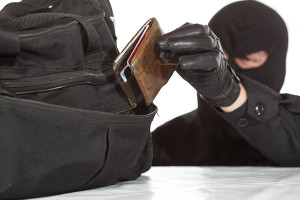Call now if you are
charged with theft. stealing a car. stealing cable. We can help you! filing a false medical claim. fraud.
Theft
Theft is a very serious matter in Minnesota. Its laws ensure that a person’s property is protected and those convicted face heavy penalties.
It is important that you know what constitutes as theft in Minnesota before you need to contact a lawyer. Learn more about theft laws and know your rights.
Theft Breakdown
 According to Minnesota law, a person can be charged with a theft crime if he or she commits one of the following offenses:
According to Minnesota law, a person can be charged with a theft crime if he or she commits one of the following offenses:
- Take, use, transfer, or conceal property owned by another person without any consent (written, verbal, or otherwise) and with the specific intent to deprive the rightful owner of said possession.
- Steal either property or services by a trick, swindle, or false representation
- Find or recover lost property and fail to make any attempt to deliver the property back to the rightful owner
- Intentionally remove property from a money-operated machine without depositing any money
- Removing or heavily altering identification numbers on a piece of property in order to deny the rightful owner of the use of the said property
- Steal cable through any unauthorized connections
- File a false medical claim
- Steal a car
- Separate corporate property so that it may be used for something other than the general business purposes intended
The nature and circumstances of the crime will determine the type of punishment, be it a fine, prison, or a combination of the two. The monetary value of the property as well as how it was taken will help prosecutors determine how to charge offenders.
Minnesota Theft Laws and Sentences
 If a person is caught committing any one of the crimes above, he or she may face one of the following sentences. All theft crimes fall into one of two categories: felony and misdemeanor.
If a person is caught committing any one of the crimes above, he or she may face one of the following sentences. All theft crimes fall into one of two categories: felony and misdemeanor.
Felonies are usually more serious and incur higher consequences. If a person steals property, services, or a firearm valued at more than $35,000 under aggravating circumstances (deceit, fraud, ect.), he or she may spend 20 or more years in prison, a $20,000 fine, or both.
Offenders who steal property between the values of $5,000 and $35,000, a firearm, a trade secret or an explosive receive a slightly less severe sentence. If caught, a person may serve between 10 and 20 years in jail and pay anywhere from $20,000 to $100,000 in fines.
For property valued at $1,000 to $5,000, offenders may serve up to 5 years in prison and pay up to $10,000 in fines.
 Offenders who steal property valued between $500 and $1,000 are usually charged with what is known as a gross misdemeanor. The offender may spend up to one year in prison, pay as much as $3,000 in fines, or both (§ 609.52 Subd. 3(4)). A misdemeanor, which is the lowest level crime, is given to offenders who steal property valued at less than $500. They may spend as many as 90 days in jail and have to pay fines totaling $1,000 (Minn. Stat. Ann. § 609.52 Subd. 3(5)).
Offenders who steal property valued between $500 and $1,000 are usually charged with what is known as a gross misdemeanor. The offender may spend up to one year in prison, pay as much as $3,000 in fines, or both (§ 609.52 Subd. 3(4)). A misdemeanor, which is the lowest level crime, is given to offenders who steal property valued at less than $500. They may spend as many as 90 days in jail and have to pay fines totaling $1,000 (Minn. Stat. Ann. § 609.52 Subd. 3(5)).
Theft charges are no laughing matter. Offenders may find themselves spending time in jail and paying large fines. Their convictions will also go on their records, which may make finding and keeping a job difficult. But remember, you do not need to face these charges alone. Having a great defense attorney like Shawn M. Betts by your side can be the defining difference between conviction and acquittal.
Resources
Other Links
© Copyright, Betts Legal Services. All rights reserved. Design by Chris DeWuske.



